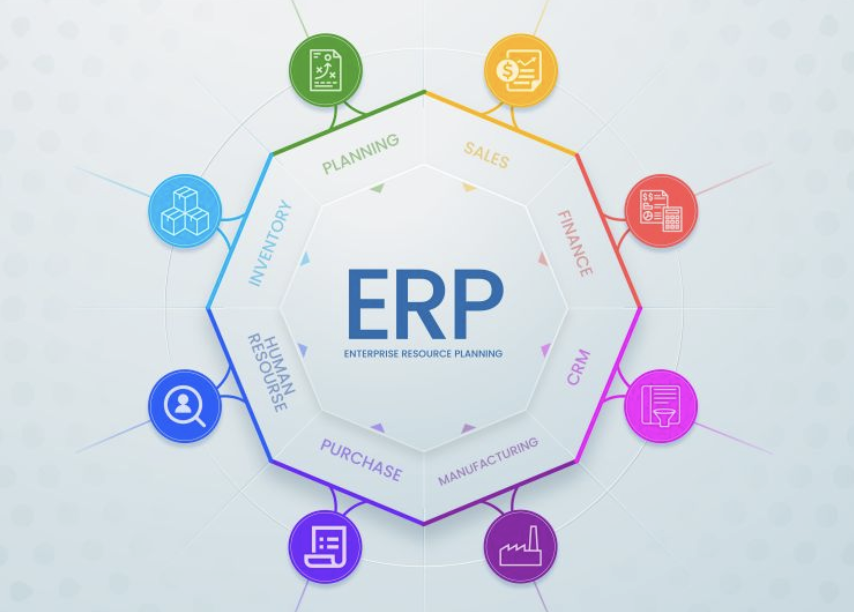Unlocking Prosperity: How the Right ERP Program Can Catapult Your Business Growth

In today’s fast-paced business landscape, ensuring smooth operations and efficient resource management are crucial for sustainable growth. Businesses are constantly seeking innovative strategies to streamline their processes and make informed decisions. Enterprise Resource Planning (ERP) systems have emerged as game-changers, revolutionizing the way businesses operate and unlocking unprecedented prosperity. This article delves into the transformative power of the right ERP program and how it can catapult your business growth.
1. Introduction: What is an ERP Program?
The first step toward understanding the significance of an ERP program is comprehending its fundamental components and functionalities. Essentially, an ERP program integrates various aspects of a business, including finance, human resources, supply chain, manufacturing, and customer relationship management, into a centralized system. This integration allows for seamless data flow and real-time insights, fostering informed decision-making and enhancing overall efficiency.
1.1 The Importance of ERP in Business Growth
Business growth hinges on the ability to adapt and evolve in line with market dynamics. An ERP program acts as a catalyst by providing a comprehensive platform for managing and automating various business functions. Through a centralized database, it enables organizations to streamline operations, optimize resource allocation, and make data-driven decisions, thereby fostering sustainable growth and profitability.
1.1.1 Streamlining Operations with ERP
One of the key advantages of implementing an ERP program is the streamlining of complex business operations. By automating routine tasks and facilitating cross-departmental collaboration, ERP systems eliminate redundancies, reduce manual errors, and improve overall operational efficiency. Streamlined operations lead to enhanced productivity, cost savings, and improved customer satisfaction, laying the foundation for accelerated business growth.
1.1.2 Enhancing Decision-Making Processes
Effective decision-making is imperative for navigating through competitive markets. ERP systems consolidate data from various departments, offering comprehensive insights that aid in strategic planning and informed decision-making. Real-time data availability allows businesses to identify trends, anticipate market changes, and promptly adapt strategies, ensuring a competitive edge and sustained growth in dynamic business environments.
1.2 Tailoring ERP to Your Business Needs
While ERP systems offer a holistic approach to business management, customization plays a pivotal role in aligning the program with specific business requirements. Tailoring an ERP system to fit the unique processes and objectives of a business enhances its functionality and ensures that it becomes an invaluable asset rather than a generic tool. Customization empowers businesses to maximize the benefits of an ERP program and leverage its full potential for sustainable growth.
2. Overcoming Challenges in ERP Implementation
While the benefits of ERP are undeniable, implementing an ERP program can be a complex and challenging process. From resistance to change among employees to technical complexities, businesses often encounter hurdles that can hinder the smooth integration of an ERP system. However, with proper planning, effective training, and a collaborative approach, these challenges can be overcome, paving the way for a successful ERP implementation and fostering sustainable business growth.
2.1 Choosing the Right ERP Program for Your Business
Selecting the most suitable ERP program is a critical decision that significantly impacts the success of its implementation. Factors such as business size, industry requirements, scalability, and integration capabilities should be thoroughly assessed when choosing an ERP solution. Conducting a comprehensive analysis of the available options and consulting with ERP experts can ensure that the selected program aligns with the specific needs and objectives of the business, laying a solid foundation for sustainable growth and success.
2.2 Maximizing ROI with Effective ERP Usage
To fully realize the potential of an ERP program, businesses must focus on maximizing the return on investment (ROI) through effective utilization. This involves continuous training and support for employees to ensure they understand the system’s capabilities and can leverage its functionalities to the fullest. Regular performance evaluations, system updates, and periodic assessments of business goals can further optimize the ROI, driving continuous growth and profitability.
3. Conclusion: Embracing Prosperity with ERP
In conclusion, implementing the right ERP program is instrumental in unlocking the full potential of a business and fostering sustained growth and prosperity. By streamlining operations, enhancing decision-making processes, and providing a holistic view of the business landscape, ERP systems empower businesses to adapt, evolve, and thrive in an ever-evolving market. Embrace the transformative power of ERP, and pave the way for unparalleled success and prosperity.
FAQs
- What is the primary role of an ERP program in business management?
- How can businesses overcome challenges during ERP implementation?
- What factors should businesses consider when selecting an ERP program?
- How does customization contribute to the effectiveness of an ERP system?
- What are the key benefits of maximizing ROI through effective ERP usage?
